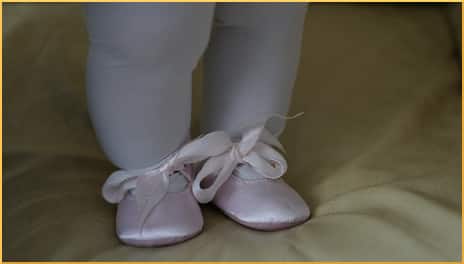 When the Centers for Disease Control released, through the Journal of the American Medical Association, news that the obesity rate among American children in the 2- to 5-year age group had decreased by 43%, there was widespread rejoicing. Childhood Obesity News suggested that the optimistic figure contained a bit of mystery and perhaps needed decoding. As it turns out, many health care professionals and others on the front lines of the childhood obesity struggle, as well as some journalists, were left with an uneasy feeling about what should have been happy news.
When the Centers for Disease Control released, through the Journal of the American Medical Association, news that the obesity rate among American children in the 2- to 5-year age group had decreased by 43%, there was widespread rejoicing. Childhood Obesity News suggested that the optimistic figure contained a bit of mystery and perhaps needed decoding. As it turns out, many health care professionals and others on the front lines of the childhood obesity struggle, as well as some journalists, were left with an uneasy feeling about what should have been happy news.
Perhaps the first clue was the variety of reasons proposed for the drop; articles on the subject tended to boil down to “Maybe this, maybe that.” For instance, one possible attribution was to changes in the federal WIC program, which provides nutrition for women, infants, and children. But WIC itself, in its latest study (which encompassed more than 200,000 kids) found no significant change in the rate of obesity. This was only one of a number of red flags.
Maybe the apparent decrease found by the CDC could not be definitively tied to a causative factor because there was no decrease. Reporting for Reuters, Sharon Begley sought out experts for clarification, one of them being Dr. Lee Kaplan, who serves as director of the Weight Center at Massachusetts General Hospital. He advises a “healthy degree of skepticism,” because there is no evidence that the lifestyles of preschoolers have actually changed. Begley explains:
For obesity rates to drop, researchers reckon, young children have to eat differently and become more active. But research shows little sign of such changes among 2-to-5-year olds, casting more doubt on the 43 percent claim.
But as obesity specialists take a closer look at the data, some are questioning the 43 percent claim, suggesting that it may be a statistical fluke and pointing out that similar studies find no such decrease in obesity among preschoolers. In fact, based on the researchers’ own data, the obesity rate may have even risen rather than declined.
The reporter describes the National Health and Nutrition Examination Survey and gives an elegant explanation of just what it means, relative to the CDC’s results, which appear to be misleading. But if the numbers aren’t right, why did the agency publicize them and get everybody all excited? Begley asked CDC spokesperson Corey Slavitt, who conceded that the 43% figure is not properly descriptive because of the study’s small sample size.
The journalist also learned that lead author Cynthia Ogden is “not doing any media interviews.” In reaction to the general puzzlement over the alleged precipitous drop, other headline writers used phrases like “Not so fast” and “Too good to be true.” Jeryl Bier, writing for the Weekly Standard, went so far as to headline a story “Experts: Michelle Obama Cited Bogus Study Showing Drastic Drop in Childhood Obesity.” Bogus study! But strong words are only to be expected when a political agenda is at stake, as well as the health of America’s children, as Bier suggests:
Rather than wait for results to come in over the long term, the White House seems too eager to show that Mrs. Obama’s Let’s Move program is having an impact while President Obama is still in office. However, continuing to cite studies that do not support the assertions being made may do more harm than good, not only to Mrs. Obama’s reputation, but to the very causes her program seeks to advance.
Unfortunately, the childhood obesity epidemic is not over, not even among 2- to 5-year-olds. Food addiction is prevalent as ever and stills need to be addressed, and effective treatment is imperative now more than ever.
Your responses and feedback are welcome!
Source: “A plunge in U.S. preschool obesity? Not so fast, experts say,” Reuters.com, 03/16/14
Source: “Experts: Michelle Obama Cited Bogus Study Showing Drastic Drop in Childhood Obesity,” WeeklyStandard.com, 03/17/14
Image by The Wu’s Photo Land

 FAQs and Media Requests:
FAQs and Media Requests: 











